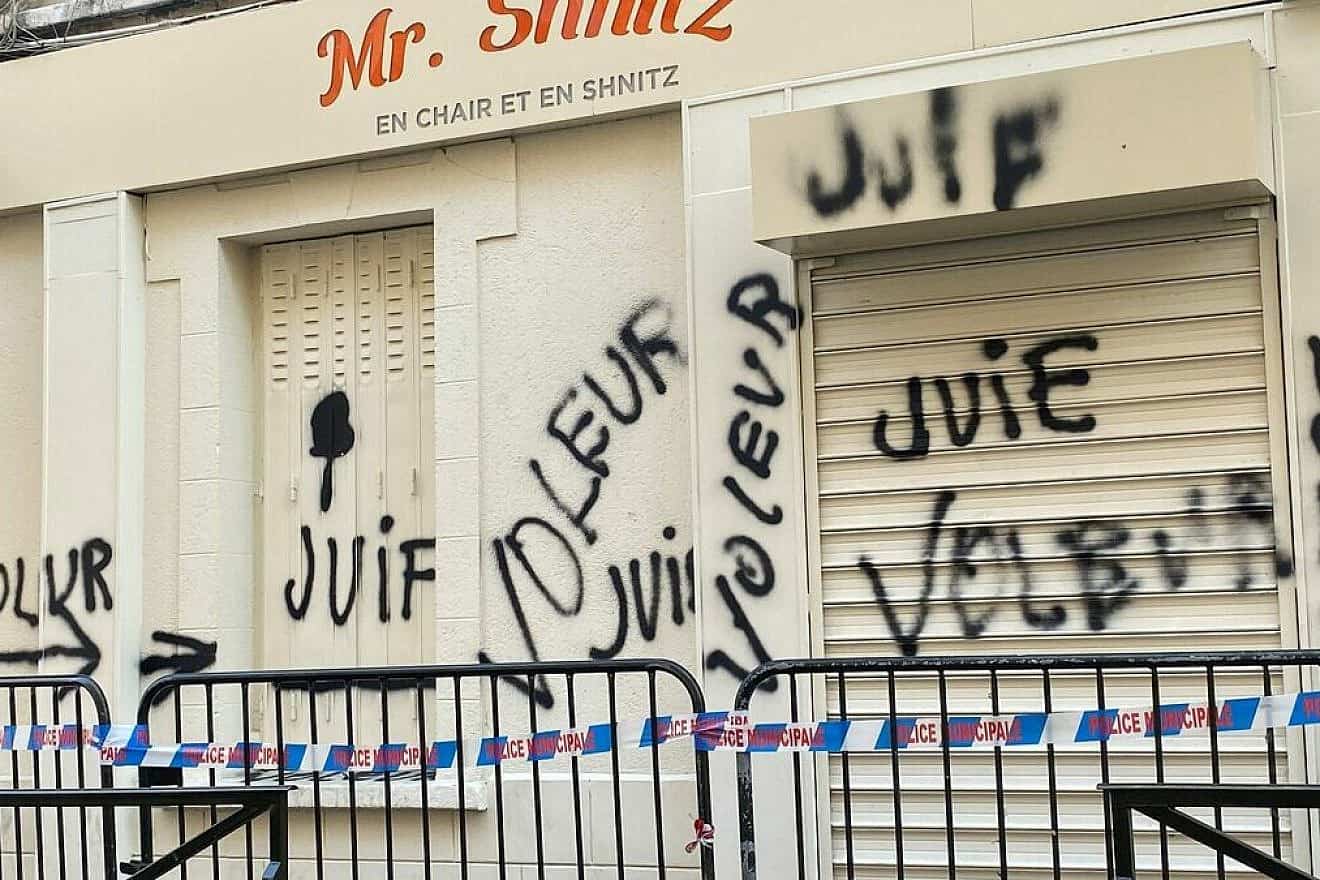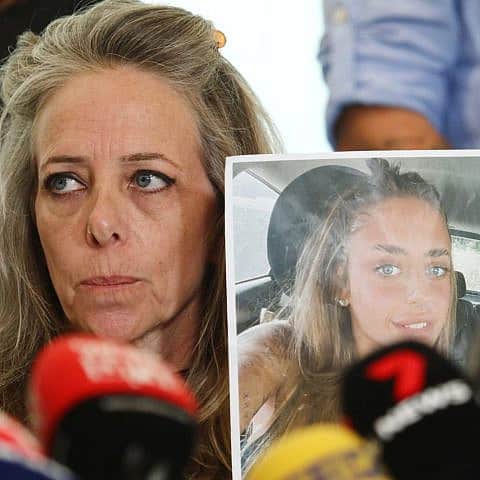
https://www.jns.org/teens-in-france-belgium-arrested-for-plotting-israel-embassy-attack/
Three teenagers have been arrested in France and a fourth in Belgium for planning a terrorist attack against the Israeli embassy in Uccle, a municipality of Brussels.
On Aug. 31, a French judge indicted for “criminal terrorist association” two high school students from the city of Tours—Malik, 15, born in France, and Maskhoud, 16, a Russian of Chechen origin, French daily Le Parisien reported on Sunday.
A third boy, 16, another Russian from the Caucasus region living near Nantes, was arrested on Sept. 8 after returning from a vacation in Russia.
A fourth suspect, a 16-year-old Belgian nicknamed “Al-Baljikie,” was arrested on June 14 by Belgian anti-terrorism police. He was indicted for terrorism in Brussels.
Al-Baljikie allegedly encouraged the French teens to choose the Israeli embassy in Uccle as their target.
RELATED ARTICLES

US and British solidarity with Israel, and France’s fearOctober 23, 2023

Israel, US, France and hostage’s family slam Hamas videoOctober 17, 2023

France, Germany, Italy, UK, US support Israel, condemn HamasOctober 9, 2023
However, the ringleader appears to be Malik.
According to Le Parisien, “With several accomplices, Malik is suspected of having fomented an anti-Semitic attack against an Israeli embassy, in particular the one located near Brussels.”
Malik was born in Tours, the eldest of four children, to parents from Algeria, who are described as “moderate Muslims.”
In April 2023, Malik (whose real name may not be published in accordance with French law) encouraged students to sing in the school courtyard a song that included lyrics about “bringing out the kalashs [Kalashnikov rifles],” killing “French people” and “unarmed civilians.” The song also glorified the 2015 Bataclan theater massacre by Muslim terrorists.
“After school, Malik managed a veritable media outlet glorifying ISIS on Tiktok and Telegram, where he broadcast montages of videos advocating attacks using the communication codes of the jihadist organization,” Le Parisien reported.
His friend, Maskhoud (name also changed), was born in the Republic of Chechnya and emigrated with his family to Tours, and is not a French citizen. He had received disciplinary reprimands for instigating collective prayers at school and listening to jihadist war songs. One day, he told his friends, “We must kill the unbelievers and go to Syria.”
He also created online video games where the player is a jihadist, armed with an assault rifle, who commits massacres at a school or a bar.
The two reportedly terrorized students and teachers. Even the principal feared them.
On April 5, Malik and Maskhoud were caught at a park making homemade explosives with hydrochloric acid and aluminum, key ingredients in an explosive popular with jihadists.
They told the police they were only making firecrackers.
On May 3, French authorities searched the homes of the two students. They learned that they had experimented with explosives before.
The General Directorate of Internal Security (DGSI), responsible for France’s counter-terrorism activities, examined a phone found between the dresser and the bedroom wall of Malik’s room.
They found a video of Malik, under the pseudonym, “Abou Souleyman al-Faransi,” dressed in Arab garb, pointing a gun at the camera and declaring, “Oh West, … we are coming to your home to kill you as you killed our women and children in Sham [Arabic term for Greater Syria region]. God is great!”
They also found indications of online searches regarding Israeli embassies in France, Luxembourg and Belgium. The searches eventually focused on the Israeli embassy in Uccle, including its exact location.
Along with the searches for Israeli embassies, authorities found an increase in searches regarding explosives components, including “dihydrogen,” “nitric acid” and “C4.”
The French investigators also accessed discussion groups on the encrypted messaging app Olvid on Malik’s phone. In one group, entitled “Assault Plan,” Malik describes the proposed stages of the attack, first “shooting down and slitting the throats” of on-duty police officers at the Israeli embassy, then parking a van packed with explosives at the site.
Surviving civilians were to be executed. “We must not forget that our goal is to terrorize them. There must be as much blood as possible,” said Malik. “And our target is the Jews. Killing only police officers is not effective. They know they can die in their work. But the people who work there think they live in security.”
DGSI officers arrested Malik and Maskhoud on Aug. 29. Malik confessed immediately to the plot against the embassy, but blamed “youthful error and psychological fragilities,” according to Le Parisien.
“By dint of brainwashing, I found that it was an easy way out of all my problems,” claimed the teenager. “I had depressive tendencies and I told myself that at least my life would be over… I began to see ISIS as heroes.”
He thanked the investigators for saving him. “Luckily you intervened because I would have done things that I would have regretted.”
Maskhoud also admitted he was aware of the plans but said he had rejected involvement. He first thought it was a game, and only later understood his co-conspirators were serious, he claimed.
Maskhoud said he had been given the job of truck driver, but that he left the discussion group because he was afraid of dying.
He accused Malik of still being radicalized.
The third suspect from France, who was arrested on Sept. 6, had been tasked with planning a possible escape to the Caucasus. He has been diagnosed as schizophrenic and has been placed under judicial supervision.
The boys’ attorneys claim their clients were manipulated online.
Malik’s lawyer said, “My client understands today that he was manipulated and regrets not having measured the consequences of his exchanges with terrorist organizations.”
“Our client appears to be particularly young and vulnerable,” said Maskhoud’s two attorneys.
